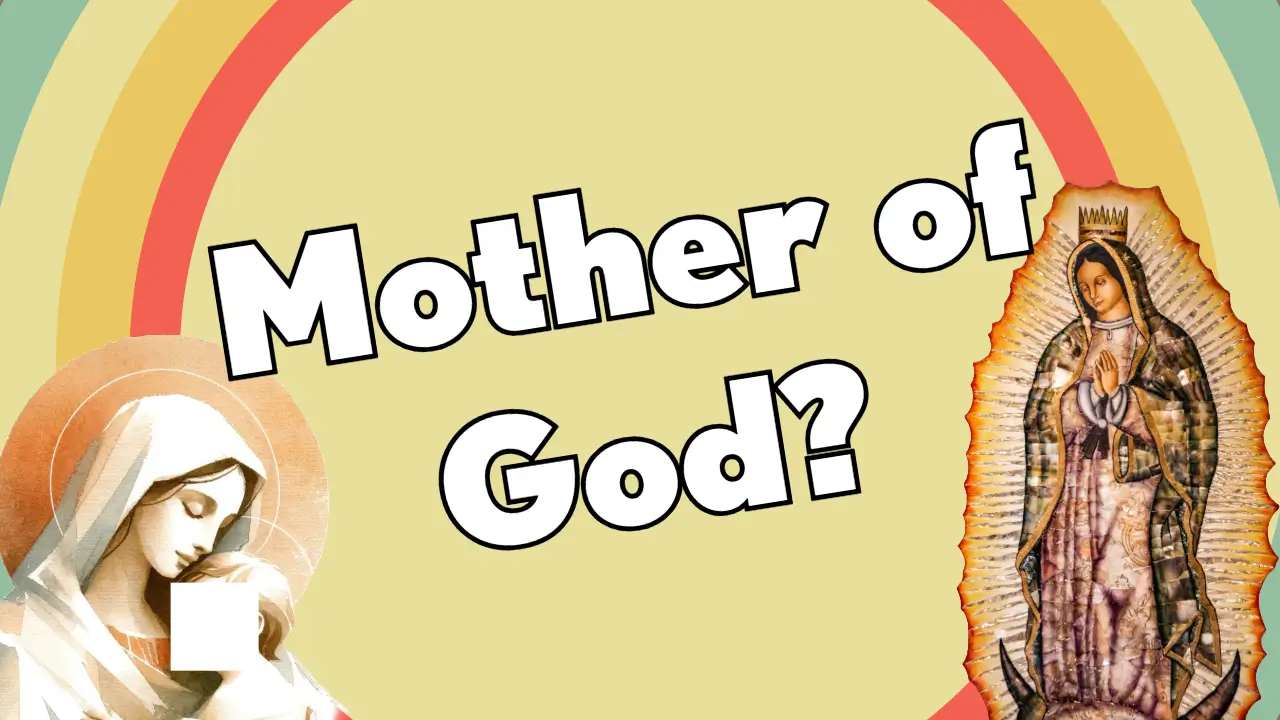The question "Is Mary the Mother of God?" goes to the heart of Christian theology, stirring discussions that have persisted for centuries. This question isn't merely about titles or honorifics but touches on the very essence of Christ's nature and the role of Mary within God's plan of salvation. From a traditional Christian perspective, particularly one rooted in scriptural evidence, the context of Mary's title as "Theotokos" or "Mother of God" offers key insights into the Incarnation and the dual nature of Christ. This article aims to unpack these complex theological concepts, by examining both the affirmative stance supported by historical councils and scripture, alongside a critical perspective that seeks to clarify Mary's role without potentially overshadowing the divine initiative in the Incarnation. By navigating through these perspectives, I hope to illuminate the significance of Mary's role while keeping the focus central to Christian faith, Jesus Christ, fully divine and fully human.
Is Mary the Mother of God? The Traditional Christian Perspective
Historically, the term Theotokos, meaning "God-bearer" or "Mother of God," was officially affirmed at the Council of Ephesus in 431 AD. This affirmation was not made to elevate Mary but to safeguard the doctrine of Christ's nature against heresies like Nestorianism, which suggested a separation between Christ's divine and human natures. By calling Mary Theotokos, the council emphasized that Jesus Christ, being fully God and fully man, was one person with two natures. This is reflected in scripture where Jesus is described as the Word who was with God and was God, indicating His divine nature from the beginning (John 1:1-2). We also see the Word becoming flesh emphasizing the human nature of Jesus (John 1:14).
In the traditional Christian view, Mary's role is pivotal but distinctly human. She is acknowledged as the mother of Jesus in His human nature, thus "Mother of God" in the sense that she bore Jesus, who is God incarnate. This does not imply that Mary has any divine attributes or that she pre-existed God. The scriptural basis for this understanding comes from various passages. Elizabeth, filled with the Holy Spirit, exclaims, "Why am I so favored, that the mother of my Lord should come to me?" (Luke 1:43), where "Lord" is a reference to God, indicating Mary's role as the mother of God. Additionally, Galatians 4:4 states, "But when the fullness of time had come, God sent forth his Son, born of a woman," underscoring Mary's role in the Incarnation. The prophecy in Isaiah 7:14, "Behold, the virgin shall conceive and bear a son, and shall call his name Immanuel," which Matthew 1:23 interprets as "God with us," further links Mary directly to the birth of God in human form.
Theologically, calling Mary Theotokos reinforces the belief in the full divinity of Jesus Christ. It underscores the unity of Christ's personhood, countering any heresy that might separate His divine from His human nature. This title exemplifies how God uses human beings in His divine plan, emphasizing human free will and cooperation with God's grace.
A Steel-Man Argument Against Calling Mary the "Mother of God"
The title "Mother of God" for Mary, while historically affirmed to combat Nestorianism, can be critiqued from a perspective that emphasizes the divine nature of Christ and Mary's role in a manner that avoids potential misunderstandings. This view argues that while Mary's role in the Incarnation is unparalleled, calling her the "Mother of God" might imply that Mary is the source of God's existence, which contradicts the doctrine of the eternal pre-existence of the Son. Jesus, as the Word, was with God and was God from the beginning (John 1:1), suggesting His divine nature was not born but eternally exists.
Moreover, this perspective highlights a concern that the title might obscure the distinction between Christ's human and divine natures. It could be misinterpreted to suggest that Mary gave birth to the divine nature itself, rather than to the person who is both fully God and fully man. Critics argue this could lead to a confusion where Mary's role in the Incarnation overshadows God's plan, potentially leading to a form of veneration that borders on worship, which some might see as idolatry or Mariolatry.
Scripturally, while Mary is honored, the term "Mother of God" isn't explicitly used. Critics might argue that scripture emphasizes Jesus's divine sonship directly from God (e.g., Luke 1:35) rather than through Mary's motherhood, aiming to maintain a balance where Mary's role is acknowledged but not to the extent where it might overshadow the direct divine action in the Incarnation.
From this viewpoint, calling Mary the "Mother of Christ" or "Mother of Jesus" might be preferred to clarify that her motherhood pertains to the human nature of Christ, which is united with His divine nature in one person. This approach seeks to preserve the mystery of the Incarnation, the divinity of Christ, and the appropriate veneration of Mary without crossing into what some might perceive as theological or devotional excess.
Conclusion
In conclusion, from a traditional Christian perspective, Mary is indeed the Mother of God in that she bore Jesus, who is God. This title serves to protect the orthodox understanding of Christ's nature rather than to elevate Mary to a divine status. Her role, as depicted in scripture, is pivotal but human. Thus, while Mary holds a significant place in traditional Christian theology, the ultimate focus remains on Jesus Christ, the Savior, whose divine and human natures are indivisible, as affirmed through the title Theotokos. However, the steel-man argument against this title can help provide a balanced view, reminding us of the nuances in theological discussions about Mary's role, ensuring that Christ's divinity and Mary's human motherhood are appropriately distinguished and respected.






